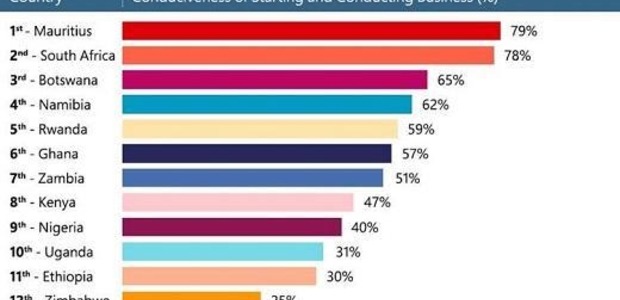advertisement
An SME Landscape Study: The Conduciveness of Starting and Conducting Business in Africa
Thinkroom Consulting’s inaugural report, titled An SME Landscape Study: The Conduciveness of Starting and Conducting Business in Africa, released at…

Thinkroom Consulting’s inaugural report, titled An SME Landscape Study: The Conduciveness of Starting and Conducting Business in Africa, released at Microsoft South Africa’s offices in Johannesburg, reveals a unique ranking of twelve African countries based on their conduciveness for SMEs to start and conduct business.
This secondary study incorporates the assimilation of key indicators from a number of credible studies across twelve African countries to determine a measure for the conduciveness of starting and operating a business as a Small and Medium Enterprise (SME) in the country in question.
With the increasing global emphasis on investment opportunities in Africa’s rapidly growing economies for multinationals and Small and Medium Enterprises (SMEs) alike, it is vital for investors and SMEs to understand the business landscape of a country before deciding to expand into its markets.
advertisement
Twelve African countries with sufficient available data were then ranked to indicate the most to the least conducive countries to start and manage an SME. This score was further benchmarked against countries outside of Africa (United States, United Kingdom and France) to provide an indication of the measure compared to non-African, developed markets.
“The ability for SMEs to have access to online infrastructure is vital in the African market. It opens up opportunities for trade and e-commerce, and access to cloud-based software at a fraction of the cost of traditional IT infrastructure. Our work with Thinkroom and our SME audiences in Africa during Global Entrepreneurship Week has focused on getting businesses started and working online,” says Perry Kamel, Microsoft’s Senior Business Development Manager for the SME audience in Africa.
The twelve countries were ranked in this order: Mauritius, South Africa, Botswana, Namibia, Rwanda, Ghana, Zambia, Kenya, Nigeria, Uganda, Ethiopia and Zimbabwe.
advertisement
Mauritius’ internet penetration (% of population)is at 39%, while there are 132 mobile cellular subscriptions per a hundred Mauritians. Internet and mobile penetration in South Africa is slightly higher, with a 51.5% internet penetration and 150 mobile cellular subscriptions for every hundred South Africans. Internet penetration in Botswana is at 15% of the population and the ratio of mobile cellular subscriptions to every hundred people in the country is 167:100.
The internet penetration (%of the population) in Kenya is at 47.3%, while there are 74 mobile cellular subscriptions for every hundred Kenyans.Surprisingly, Nigeria’s internet penetrationis at 39.7% of the population and there are reportedly only 78 mobile cellular subscriptions for every 100 Nigerians. The situation in Ethiopia seems rather dire in comparison, with only 1.9% of the population having access to the internet and only 32 mobile cellular subscriptions for every hundred Ethiopians.